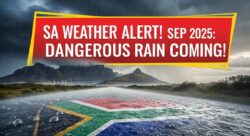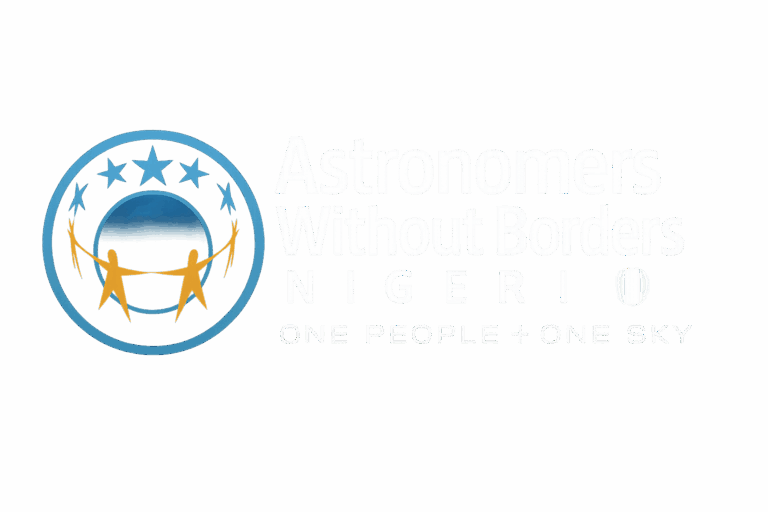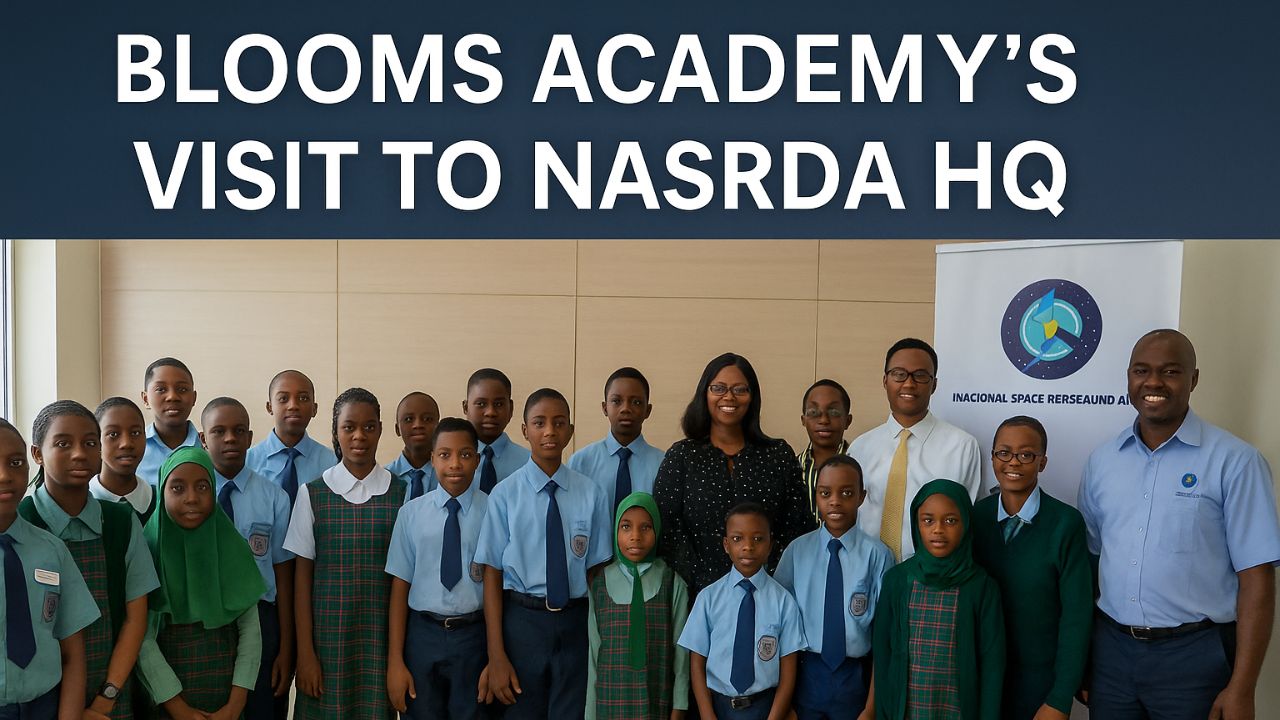In a powerful blend of curiosity, education, and national pride, students from Blooms Academy Abuja embarked on an unforgettable journey to the Headquarters of the Nigerian Space Research and Development Agency (NASRDA). Facilitated by Astronomers Without Borders Nigeria (AWB Nigeria), this educational outreach aimed to connect young learners with the cutting-edge world of space science, right from the heart of Nigeria’s space ecosystem.
The tour, held at NASRDA’s state-of-the-art campus in Abuja, gave Blooms Academy students a rare firsthand glimpse into Nigeria’s strides in space technology and planetary science—an experience that could shape the minds of future scientists, engineers, and astronauts.
Why NASRDA Matters
NASRDA, established in 1999, is Nigeria’s premier space agency and one of the most advanced in Africa. It is responsible for:
 South Africa Weekend Weather September 2025 – Provinces Alerted of Dangerous Rain Conditions
South Africa Weekend Weather September 2025 – Provinces Alerted of Dangerous Rain Conditions
- Launching communication and Earth observation satellites (e.g., NigeriaSat-1, NigeriaSat-2, NigComSat-1R).
- Developing national geospatial data systems.
- Supporting climate change research, telemedicine, disaster monitoring, and food security via satellite data.
- Envisioning Nigeria’s first human spaceflight program by 2040.
This visit served to bridge the gap between classroom theory and real-world space applications—bringing science alive for the next generation.
Highlights of the Visit
The Blooms Academy delegation was welcomed by NASRDA officials and AWB Nigeria volunteers, followed by an engaging presentation on Nigeria’s journey in space science. The program included:
- Guided Tours of Key NASRDA Departments
- Satellite Development and Testing Lab – where students saw Nigeria’s real satellite models and testing equipment.
- Earth Observation Control Room – showcasing live satellite imagery tracking desertification and flood zones.
- Telemedicine & e-Learning Station – showing how space data supports remote healthcare and education.
- Hands-on Science Demos
- Students interacted with GIS mapping tools and miniaturized satellite models.
- A solar telescope was set up for safe daylight viewing of sunspots and solar flares.
- Meet-the-Scientist Q&A
- NASRDA engineers shared how Nigeria collaborates with global agencies like NASA, JAXA, and CNES.
- Female aerospace engineers inspired young girls by sharing their stories and breaking gender stereotypes in STEM.
- Interactive STEM Challenges
- “Build Your Satellite” – where students crafted basic satellite prototypes from recyclable materials.
- “Orbit Simulation Game” – explaining orbital mechanics using augmented visuals.
Student Reactions
The experience left a lasting impact on the students and faculty alike. Many had never seen scientific instruments beyond textbooks. This visit opened a world of possibilities.
“I never imagined that Nigeria had its own satellites in space. Now I want to become an aerospace engineer,” said Chidera, a Grade 9 student.
“I thought space was only for other countries. Today, I feel proud and excited that we’re part of it too,” shared Emmanuel, another student.
 September 2025 R12,500 Youth Grant – Application Window Open With Step-by-Step Instructions
September 2025 R12,500 Youth Grant – Application Window Open With Step-by-Step Instructions
Teachers praised the initiative, emphasizing that such engagements make science relatable and inspire long-term academic goals.
AWB Nigeria’s Vision in Action
AWB Nigeria, under the global banner of “One People, One Sky,” champions inclusive access to astronomy and space science. By connecting institutions like NASRDA with schools across Nigeria, AWB is fostering a generation of science-literate, globally aware students.
Programs like these:
- Support Nigeria’s National STEM Strategy.
- Help close the gender and opportunity gap in science education.
- Encourage youth leadership in climate change, innovation, and space research.
Noteworthy Facts Shared During the Visit
- Nigeria launched its first satellite (NigeriaSat-1) in 2003 from Russia.
- NASRDA satellites are used for predicting floods, monitoring Boko Haram insurgency zones, and tracking agricultural health.
- Nigeria aims to have a locally trained astronaut launched by 2040.
- NASRDA collaborates with over 20 international agencies and universities.
Looking Ahead
AWB Nigeria and NASRDA plan to scale such engagements with:
- More school visits from both public and private sectors.
- Launch of a “Young Astronomers Fellowship” for top-performing students.
- Virtual observatory tours for rural schools lacking access to physical visits.
Blooms Academy’s visit to NASRDA HQ was not just an excursion—it was a spark that could ignite careers, innovations, and dreams in space science. As these students return to their classrooms, they do so with heads held higher and eyes turned skyward.
Because when young minds meet space science, the future of Nigeria shines even brighter.
One People. One Sky. One Future.




